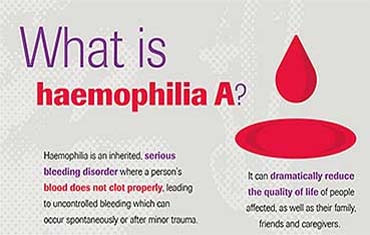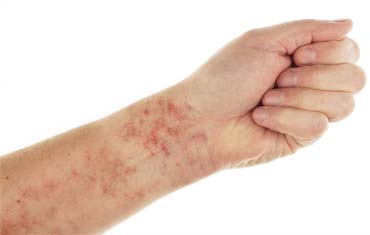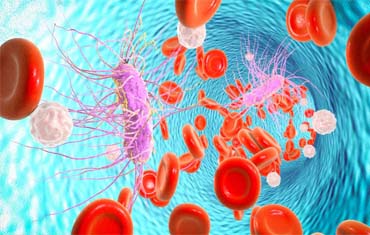• Anemia

Anemia is a condition in which you lack enough healthy red blood cells to carry adequate oxygen to your body's tissues. Having anemia, also referred to as low hemoglobin, can make you feel tired and weak. There are many forms of anemia, each with its own cause.
• Sickle Cell

Español (Spanish) SCD is a group of inherited red blood cell disorders. Healthy red blood cells are round, and they move through small blood vessels to carry oxygen to all parts of the body. In someone who has SCD, the red blood cells become hard and sticky and look like a C-shaped farm tool called a “sickle”.
• Haemophilia

Haemophilia is a rare condition that affects the blood's ability to clot. It's usually inherited. Most people who have it are male. Normally, when you cut yourself, substances in your blood known as clotting factors mix with blood cells called platelets to make your blood sticky and form a clot.
• ITP - Idiopethic Thrombocyto

Idiopathic thrombocytopenic purpura (ITP) may occur when the immune system mistakenly attacks platelets. In children, it may follow a viral infection. In adults, it may be chronic. Symptoms may include easy bruising, bleeding and pinpoint-sized reddish-purple spots on the lower legs. In children, ITP usually resolves without any treatment. Adults commonly need treatment with medication for bleeding. Rarely the spleen may need to be removed.
• Septicemia

Septicemia, or sepsis, is the clinical name for blood poisoning by bacteria. It is the body's most extreme response to an infection. Sepsis that progresses to septic shock has a death rate as high as 50%, depending on the type of organism involved. Sepsis is a medical emergency and needs urgent medical treatment.
• Leukemia

Leukemia is a broad term for cancers of the blood cells. The type of leukemia depends on the type of blood cell that becomes cancer and whether it grows quickly or slowly. Leukemia occurs most often in adults older than 55, but it is also the most common cancer in children younger than 15.
